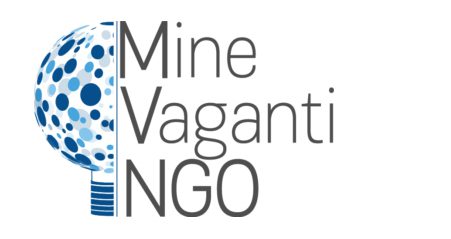CP BIG SPORT GITG
GITG
Get In The Game
As shown in the Eurobarometer 472, in the EU, men exercise, play sport or engage in other physical activity more than women. Although young people are among the most active part of the European population, young girls still participate far less than young males. 6% of young women aged 15-24 engage regularly in physical activity, as compared to 12% of young males 15-24. Similarly, 33% of young girls never engage in PE (15 % of young males). Involving young girls in sports is thus necessary, as it will allow them to develop skills and important attitudes of self-fulfilment, while at the same time providing crucial opportunities of engagement and involvement in society While gender inequalities in participation rates are an issue for all sports, this is particularly true of certain sports that are traditionally associated with men. GITG promotes access to team sports activities directly through school, that is the easiest and most direct way to provide different proposals in order to involve young girls who seldomly show interest in sports for several reasons like feeling uncomfortable, inadequate or frightened of social confrontation.
Start: 11.2022 End: 05.2025
Project Reference: ERASMUS – LS 101089786
EU Grant: 250.000
Programme: ERASMUS – LS
Key Actions: Cooperation partnerships
Action Type: Coperation Partnership in Sport
PROJECT PARTNERS
- Racing Club de Cannes (Coordinator) – France
- ASD Sport Compass – Italy
- Federazione Italiana Pallavolo – Italy
- Keravnos Larissas bc – Cyprus
- Kosarkaski Savez Grada Nisa – Serbia
- Associacao Dos Profissionais de Educacao Fisica e Desporto Do Porto – Portugal
PROJECT TOPICS:
The project will present teachers, staff, and youth workers with new approaches to learning and learning methods, digital content, technologies and applications, supportive pedagogy. and didactic approaches.
TARGET GROUPS:
The target groups of the project are:
- Sport stakeholders, policymakers, NGOs, educational providers, public authorities, experts in the field of Sport and general public.
PROJECT’S OBJECTIVES:
– Perform a research of good practices of promotion of equal opportunities in Sport for youngsters. The research will be focused on the best practices for the inclusion in sports of young girls through online/offline social campaigning.
– Develop a Training Toolkit for teachers and trainers in charge of providing sports activities at school, aimed at developing inclusive, egalitarian and engaging sport activities in order of empowering young girls to play a protagonist role in sports.
– Organize local activities during which teachers and trainers will carry out online and offline awareness-raising activities for youth, local community and local sport/youth stakeholders
APPROACH / METHODOLOGY:
The methodology of the project delivers high standards of quality by drawing a progression of activities wherein all the needed steps for achieving the project aim are comprised in a coherent and mutually connected pattern entailing research, production of a training format grounded on factual analysis, educational development, local testing and validation.
DELIVERABLES
1) Report: The Report will serve as a reference resource for Sport organizations and Schools, as well as policy makers to profile the phenomenon of inclusion of young girls in Sports, along to the promotion of equal opportunities in Sports. The Report will include up-to-date evidence that will allow the analysis of similarities and differences between countries part of the Consortium. It will be sustained through complementary research in the frame of follow-up proposals.
2) Training Format: The Training Format will contain information and tools of Non-Formal Education as well as sport for teachers and trainers working with young girls in educational programmes focused on promoting inclusive, egalitarian and engaging sports activities. It will be originating from the crossanalysis contained in the Research Report and its aim will be the enhancement of the abilities of Sport operators to stimulate the participation of young girls into Sport. It will be tested in the frame of local activities of WP2 and, upon its finalisation, integrated within the regular offer of the involved partners.
3) Social Campaigning Guidebook: The Guidebook will be a resource conceived for an audience of sports teacher and trainers planning to engage in online as well as offline social campaigns on promoting inclusive and engaging sports activities, with a main focus placed on gender equity. The Guidebook will provide practical and theoretical Guidance on social campaigning on the specific topic of girls’ inclusion and participation into sports.
4) Web platform and E-Modules: The Modules – extracted from the Guidebook – will be multilingual and integrated on a discreet project multilingual Sport Meeting Platform. It will be a digital resource, which will be conceived as a practical tool for girls to link with each other, communicate, create groups and organise matches, activities or tournaments, thus representing an opportunity for young girls to play outside of official clubs and federations activities. The Sport Meeting Web Platform will stimulate young girls’ organisational skills and autonomy, since it will enable them to manage their free time independently.
PROJECT MEETINGS:
The Transnational Project meetings are the following:
Kick-off Meeting (M1)
Hosting: Racing Club de Cannes
Venue: Cannes, France
Participant: 36, 3 Sport Operators and 3 School Teachers per partner organization.
Mid-Term Transnational Partners Meeting (M12)
Hosting: Keravnoss Larissas BC
Venue: Keravnoc, Cyprus
Participans: 36, 3 Sport Operators and 3 School Teachers per partner organization .
Final Evaluation Meeting (M24)
Hosting: City of Nis Basketball Association (CNBA)
Venue: Serbia
Participants: 36, 3 Sport Operators and 3 School Teachers per partner organization.
DISSEMINATION EVENTS
Dissemination actions will be the following:
- Elaboration of Dissemination Plan
- Creation of project identity (Logo, Facebook Page, Website and Instagram Profile)
- Promotion of activities and outputs
- Production and diffusion of physical promotional materials about the project in all partner countries.
- Implementation of national Dissemination Conferences.





